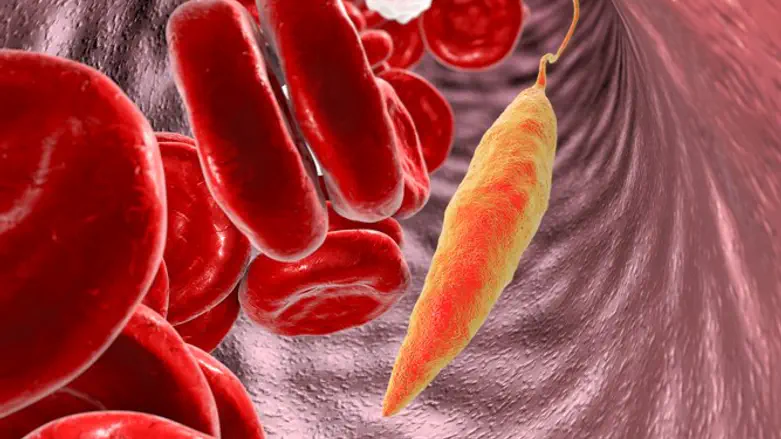
The Shomron Regional Council is struggling to obtain the necessary budget to treat leishmania (protozoan parasite called "Jericho Rose") after dozens of council residents fell ill, and due to a shortage of millions of shekels for protecting the settlements.
As of this moment there are 50 patients with leishmania in Samaria, most of them children. The leishmania is transmitted by the sand fly, whose carrier is the rock hyrax that dwells in rocks in rural areas.
Due to increased construction in Samaria communities, the sand fly and leishmania strike mainly in these areas. Leishmania often affect children because the sand fly flies low. Children are stung mainly on the face, and the sting looks like a huge pustular skin wound. Treatment of the disease is accompanied by painful injections, sometimes under full anesthesia. Even after treatment, most of those injured will remain with an ugly scar.

The leishmania, which three years ago hit the village of Tzufim, later spread to Avnei Hefetz, Shaarei Tikva, and recently reached Leshem-Alei Zahav and in Sal'it. The state budget for treating the disease, after the struggle led by the Samaria Regional Council, covers only about a quarter of the real cost of treatment, in particular for preventing other cases.
The community currently suffering the most severe blow from the leishmania is Leshem-Alei Zahav, where there are dozens of patients.
Due to the difficult situation, the Shomron Regional Council took upon itself the task of leishmania eradication in the amount of half-a-million shekels, despite the fact that the Environmental Protection Ministry has not yet transferred the necessary amount to fence the village and cement the boulders around the perimeter to block entrance of hyraxes to prevent contagion.
"The State of Israel must wake up and look for long-term solutions to this problem, before it becomes a national plague," says Samaria Regional Council head Yossi Dagan. "It's true that we received a budget of NIS 3.5 million. It's minimal. We're asking the Treasury and government to see to a real solution to this serious problem, including investing in research to find a vaccine for the disease, including funding rock-sealing in all at-risk communities, because the leishmania disease won't stop in Samaria, it'll reach all over the country if it isn't stopped sooner."
The Council says there is a lack of reporting by doctors to the Health Ministry about leishmania cases, despite the legal obligation to do so. "There's only a twenty percent reporting rate, creating a situation where the government is misled to think the disease's advance across the country is much slower than the actual situation."

